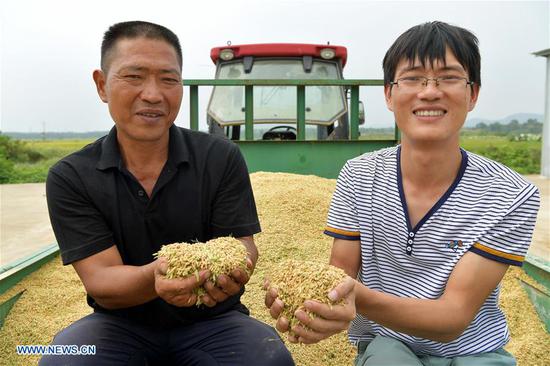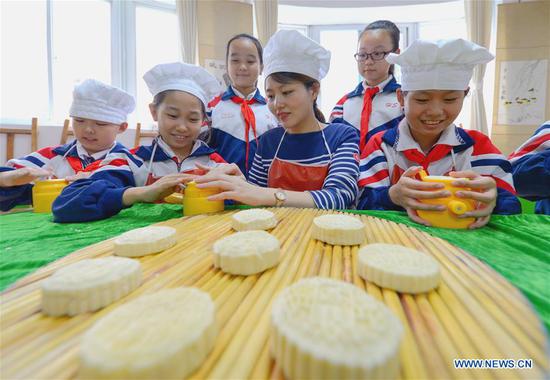Experts have refuted recent rumors circulating about genetically-modified food which have caused public concern.
A gene that might be a long-term health hazard to humans has been found in the body of Chinese people as a result of consumption of genetically-modified (GMO) food, according to an article which has circulated widely on popular social networking platform WeChat.
The article said the gene named "SCoAL", typically found in GMO food, has been detected in the chromosomes of dozens of ordinary people from China, citing a study published in a UK "science journal" called "Shelly Genetics Newswire".
The "SCoAl" gene is able to synthesize succinic acid in human body, which could interrupt the process of DNA replication, the article alleged. It also claimed the gene was detected in the body of the subjects' children, which means it could pass on to the next generation.
In a interview with the Science and Technology Daily, Lin Min, a researcher from the Biotechnology Research Institute of the Chinese Academy of Agricultural Sciences, said the so-called "Shelly Genetics Newswire" mentioned in the article does not exist, and the "SCoAl" gene is a complete fabrication.
Lin said succinic acid is a chemical substance that exists in all organisms, thus it is normal to find it in GMO crops.
Another "fact" included in the article is the assertion the "World Expo 2010 in Shanghai strictly screened GMO food to prevent them from harming foreign guests' health, while GMO food is introduced to feed Chinese people."
In response to the claim, Fang Xuanchang, an expert from science popularization website agrogene.com, said genetically-engineered soybeans were used as ingredients for the cooking oil served at the expo.
The World Expo used GMO testing technique to met demands for labeling GMO food approved by the country, the Ministry of Science and Technology said in an April 2010 statement on its website.
The WeChat article also noted "GMO food has been banned in the U.S., and many European countries."
However, according to data released by the U.S. National Agricultural Statistics Service this June, genetically-engineered varieties make up more than 90 percent of the three major crops — corn, cotton and soybeans — planted in the U.S.
As for European countries, 49 GMO crops including cotton, corn and rapeseed, have been authorized by the European Food Safety Authority as of September 2014.
Mark Lynas, a British author and environmentalist, said since the large-scale production of GMO crops began in 1996, no safety accidents related to GMO food have occurred in more than 60 countries and regions where GMO food is approved, which account for three-fourths of the world population.
GMO food has been a controversial issue in China, with many consumers worrying about the potential threats posed to their health.
A 2016 survey on GMO food shows only 11.9 percent of the over 2,000 respondents supported GMO food, while 41.4 percent held a negative attitude about the technology.
Despite the controversy, China is stepping up industrialization of GMO crops to boost agricultural output, according to a guideline released by the State Council in 2016.
The guideline, which lays out a blueprint for the development of GMO food from 2016 to 2020, said the country would accelerate research and development of genetically-modified crops, including corn, soybean and cotton.
The blueprint said given safety concerns, non-edible GMO crops would be developed first, followed by feed crops and ordinary food crops, and staple crops will be introduced last.
In China, only genetically-engineered cotton and papaya are allowed to be planted at a large scale.


















































